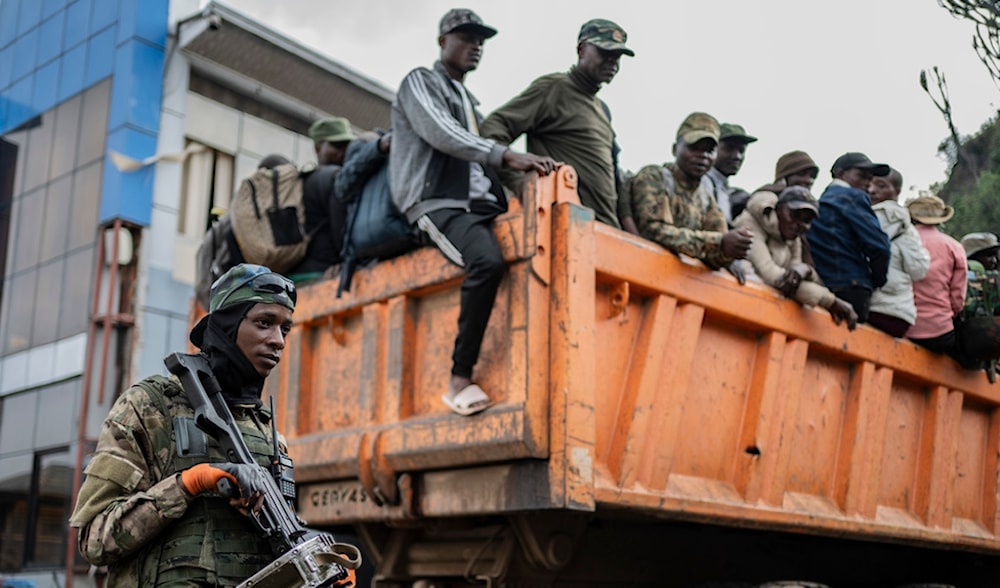Rwanda-backed M23 rebels push deeper into Congo despite ceasefire call
The M23 rebel movement has pushed into Walikale, home to 15,000 people and extremely rich in minerals, particularly tin.
-

Former members of the Armed Forces of the Democratic Republic of Congo (FARDC) and police officers who allegedly surrendered to M23 rebels arrive in Goma, Congo, Sunday, Feb. 23, 2025 (AP)
Rwanda-backed M23 rebels advanced further into Congolese territory late Wednesday, reaching the outskirts of Walikale just a day after the presidents of Congo and Rwanda called for an immediate ceasefire, residents told Reuters.
Gunfire erupted near the Nyabangi neighborhood, according to local resident Janvier Kabutwa. An army source, speaking on condition of anonymity, said the rebels launched a surprise attack on an army position outside the town, battling Congolese soldiers and pro-government groups.
Walikale, a mineral-rich town known for its tin deposits, marks the farthest west M23 has reached in its rapid offensive this year. Home to around 15,000 people, the town is located approximately 125 km northwest of Goma, the largest city in eastern Democratic Republic of Congo, which the rebels seized in January. The latest advance puts M23 within 400 km of Kisangani, Congo’s fourth-largest city.
The escalating violence has already disrupted mining operations, with Alphamin Resources suspending production at its Bisie tin mine, 60 km northwest of Walikale, due to security concerns.
Read more: Bukavu hospital patients shot in chaos of Congolese withdrawal
The conflict has drawn increased diplomatic attention, as neighboring countries and global powers scramble to prevent a full-scale regional crisis reminiscent of the 1998-2003 war, which involved multiple nations.
On Tuesday, Congolese President Felix Tshisekedi and Rwandan President Paul Kagame met in Qatar for their first direct talks since M23 intensified its offensive in January.
Alongside Qatari officials, they issued a joint statement calling for an “immediate and unconditional” ceasefire. However, the rebel group’s continued westward push raises doubts over the viability of the truce.
Later, the M23 rebel movement announced its withdrawal from planned negotiations with the Democratic Republic of the Congo (DRC) government, citing international sanctions as a key obstacle to dialogue.
Despite initially sending a delegation, M23 released a statement through its spokesperson, Lawrence Kanyuka, expressing frustration over what it described as external interference. The group accused certain international bodies of deliberately hindering peace efforts and making negotiations unfeasible.
"Successive sanctions imposed on our members … severely undermine direct dialogue and make any progress impossible … Under these circumstances, the talks have become impracticable. Consequently, our organization can no longer continue to participate in the discussions," the statement read.
🚨 COMMUNIQUÉ OFFICIEL 🚨
— AFC-Alliance Fleuve Congo (@afcongo) March 17, 2025
L’#AFC/#M23 dénonce les sanctions injustes et les attaques indiscriminées du régime de Kinshasa, compromettant le dialogue de paix.
Face à cette escalade, la tenue des pourparlers devient impossible. pic.twitter.com/APXquj3Pim

 3 Min Read
3 Min Read








